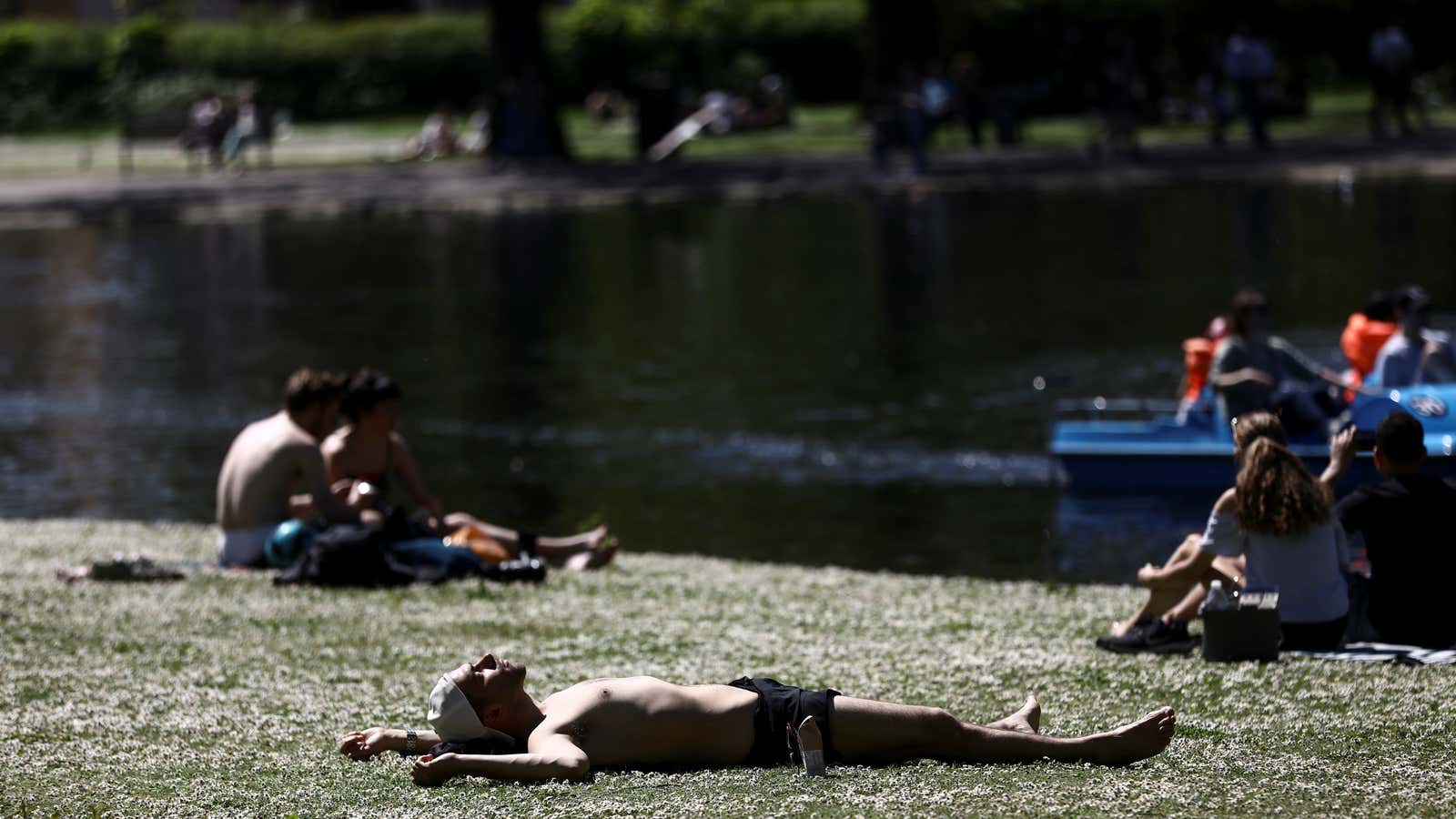Yes, Brits love to talk about the weather. It’s a safe, inoffensive subject unlikely to make waves as we go politely about our days trying to avoiding emotions, awkwardness, and eye contact. Supposedly, the average Brit spends more than four months of their life talking about the weather, which frankly seems like an underestimation.
Right now, the national obsession with the weather could be justifiable, since the ups and downs of the British economy seem tied to it. The Office for National Statistics said today that UK GDP grew by 0.6% in the third quarter, the fastest pace of growth since the end of 2016. Why? Good weather!
Namely, “strong retail sales boosted by warm weather and the World Cup,” the ONS said. Summer, generally a fickle, elusive season in Britain, actually made an appearance and the locals celebrated by going shopping.
Summer growth was also boosted by “a low base reflecting the weaker start to the year.” Why was GDP so weak at the start of the year? Bad weather! More specifically, the “Beast from the East,” a series of storms with freezing winds that put a chill on things. Retail sales were “adversely affected by poor weather conditions as consumers stayed indoors and avoided the high street,” the ONS said.
Though the data for the third quarter looks encouraging there are some worrying signs—or clouds on the horizon, if you will. Car sales fell by nearly 2% in the third quarter, continuing a downward trend that began in early 2016. Business investment fell for the third quarter in a row, something that hasn’t happened since the financial crisis. The slowdown is attributed to “Brexit-related economic and political uncertainty,” which seems to be worse than anticipated. Growth in August and September couldn’t keep up with July’s pace.
Looking ahead, analysts at PwC expect GDP growth to slow to 0.2% or 0.3% in the final quarter of the year. As the Brexit deadline quickly approaches—at the end of March 2019 the UK officially quits the EU—surveys suggest companies are curtailing spending to see what happens. After Brexit, the forecasts get worse, with the European Commission expecting the UK economy to grow more slowly than every member of the EU.
